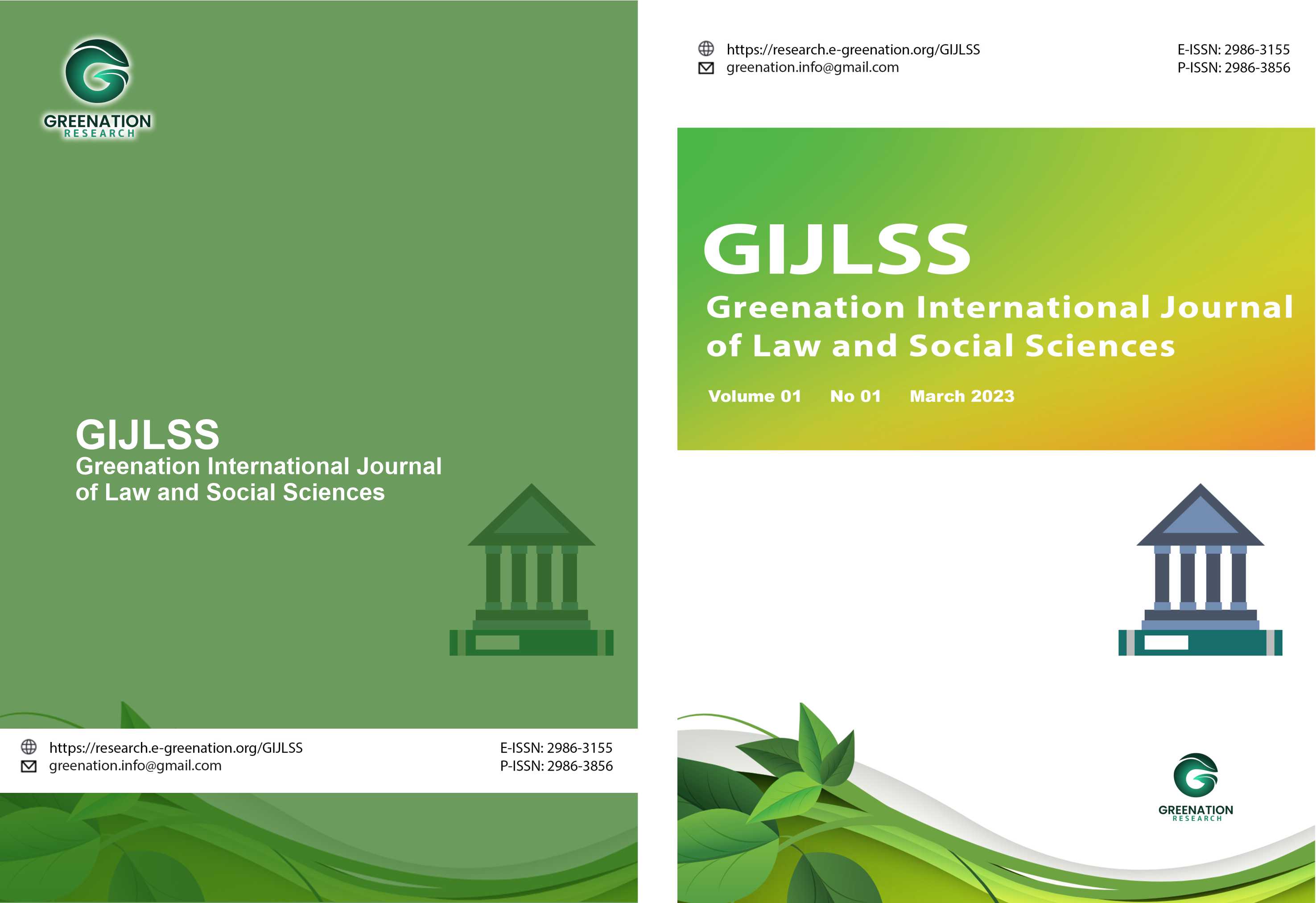Constitutional Democracy and the Challenges of Election Administration in the Era of Digital Disruption
DOI:
https://doi.org/10.38035/gijlss.v3i3.580Keywords:
Constitutional Democracy, Elections, Digital Disruption, Disinformation, E-votingAbstract
Digital disruption has fundamentally transformed the electoral landscape in Indonesia, shifting political campaigns and discourse into cyberspace. This transformation presents a paradox for constitutional democracy: on the one hand, technology offers potential efficiency through innovations such as e-voting; on the other hand, it has become a primary vector for the spread of disinformation, hoaxes, and hate speech that undermine election integrity, erode public trust, and deepen social polarization. The existing legal framework for elections, particularly law no. 7 of 2017, has proven inadequate to effectively regulate the dynamics of digital campaigns and address cyber threats, leaving election organizers (the general elections commission (KPU) and the elections supervisory agency (bawaslu) often in a reactive position. This study aims to analyze the impact of digital disruption, particularly disinformation, on the integrity of election administration and constitutional democracy in Indonesia, evaluate the adequacy of the legal framework for elections in addressing digital challenges, and examine the legal, technical, and social feasibility of implementing technological innovations such as e-voting. This study uses a normative legal method with a legislative approach. The analysis is conducted on the 1945 constitution, law no. The study examined law no. 7 of 2017 concerning elections, the electronic information and transactions law (UU ITE), and regulations from the general elections commission (KPU) and the elections supervisory agency (bawaslu) to assess the gap between legal norms and the reality of digital challenges. It found that current election regulations have significant legal gaps regarding the oversight and enforcement of campaign violations on social media, such as trolling and non-transparent political advertising. Oversight efforts by bawaslu and the KPU tend to be reactive (e.g., content takedowns) and rely heavily on collaboration with other institutions such as the ministry of communication and information. The implementation of e-voting is hampered by three main obstacles: the lack of a comprehensive legal basis, cybersecurity vulnerabilities, and low public trust in digital systems. Digital disruption poses a fundamental threat to Indonesia's electoral democracy that has not been mitigated by the existing legal and institutional framework. Comprehensive reform of the elections law is needed to specifically regulate digital campaigns, ensure transparency of funds, and implement strict sanctions. Furthermore, strengthening the technical and digital forensic capacity of bawaslu and the KPU is a necessity, which must be balanced with a national digital literacy program to build community resilience against disinformation.
References
Akbar, fma (2024). Qualitative and quantitative methods in islamic studies. Ar rasyiid: journal of islamic studies, 2 (2), 95-112.
Expert body of the Indonesian house of representatives. (2022). Analysis and evaluation constitution number 7 of 2017 concerning general election based on decision court constitutio [email protected]. Jakarta: monitoring center implementation law, secretariat general of the Indonesian house of representatives.
Bppt. (2016). Bppt e- verification trial: the future election 2019 electronics. Brief information of the Indonesian house of representatives, viii (15).
Cna insider. (2017). Indonesia also has its troll industry with fake accounts running for profit. Singapore: channel news asia.
Gultom. (2024). Utilization of bawaslu data house. Ijps: journal knowledge politics and social, 2(1).
Journal constitution & democracy. (2021). Publishing journal of constitutional law, faculty of law, university of Indonesia. Accessed from ui scholarhub.
Election governance journal. (2024). Trolls, disinformation, and campaign strategies: the challenges of digital democracy in the 2024 elections. KPU election governance journal, 3(1).
Regency KPU sekadau. (2023). Challenges implementation of e-voting in Indonesia. Accessed from KPU page.
Indonesian general election commission (KPU ri). (2022). Involvement expert law strengthen regulations technical election. Accessed from KPU page.
Indonesian general election commission (KPU ri). (2024). Prohibition campaign election. Accessed from KPU page.
Made, et al. (2014). Legalization of e-voting in village head elections. Accessed from KPU regency page sekadau.
Mahdi hidayatullah. (2024). Stra?nik digital democracy: innovation election supervisory agency face challenge 2024 election. Law studies and justice journal (laju), 1(3).
Court constitution of the republic of Indonesia. (2023). Vacancies law rule campaign in the election law tested. Accessed from mk page.
Noviana hewa kelung. (2023). Improvement role election supervisory agency republic of Indonesia in supervise campaign black on social media in the election simultaneously 2024. Journal of civic law, 8(2).
Qonita hamidah. (2023). Implications regulations constitution number 7 of 2017 regarding money politics via e-wallet in 2024 election. Qaumiyyah: journal of constitutional law, 4(2).
Rukmana amanwinata. (2020). Strengthening study system Indonesian democracy. Jakarta: mpr ri.
Simamora, d. (2023). Problems enforcement law to black campaign practices in election general. Iso journal: journal social sciences, politics and humanities, 4(2).
Sri rahayu. (2019). Election simultaneously: e-voting as solution? Accessed from medan city KPU page.
Shah, r. (2024). E-voting has been used for a long time in village head elections, are you ready for the election? Kompas.id.
Hasanuddin university. (2021). Effectiveness of content takedown election bawaslu makassar city (thesis).
Widi nurintan ary k. (2025). Capacity building institutional supervisor election. Accessed from KPU regency page blora.
Downloads
Published
How to Cite
Issue
Section
License
Copyright (c) 2025 Agung Fernando, Subianta Mandala

This work is licensed under a Creative Commons Attribution 4.0 International License.
Copyright :
Authors who publish their manuscripts in this journal agree to the following conditions:
- Copyright in each article belongs to the author.
- The author acknowledges that the Greenation International Journal of Law and Social Sciences (GIJLSS) has the right to be the first to publish under a Creative Commons Attribution 4.0 International license (Attribution 4.0 International CC BY 4.0).
- Authors can submit articles separately, arrange the non-exclusive distribution of manuscripts that have been published in this journal to other versions (for example, sent to the author's institutional repository, publication in a book, etc.), by acknowledging that the manuscript has been published for the first time at GIJLSS.























